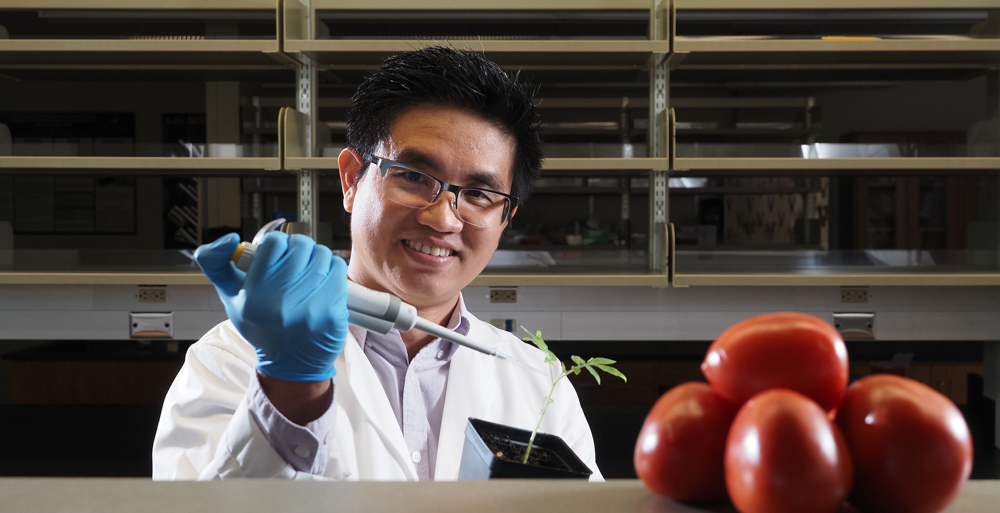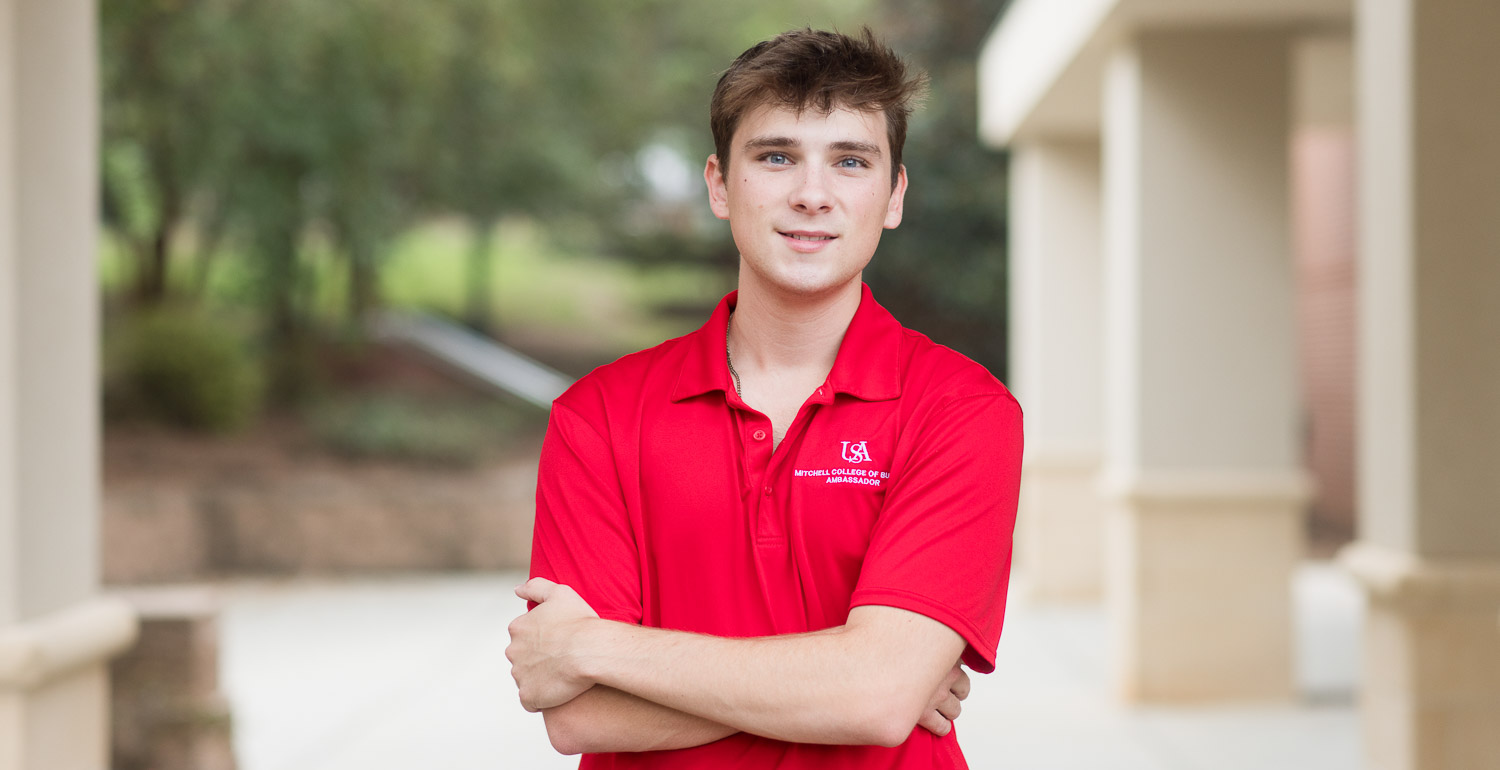Tran Awarded Grant to Study Tomato-Killer Pathogen
Posted on November 21, 2023

Dr. Tuan Tran, assistant professor of biology at the University of South Alabama, describes Ralstonia solananacearum as something like a supervillain in the world of plant pathogens.
The soil-based bacterium causes wilt in crops such as tomatoes, peppers and potatoes. Scientists around the world have been studying it for years, but so far it’s been difficult to eradicate the pathogen.
“It’s an important disease,” said Tran. “It damages a wide variety of crops. Not just ones we eat, but flowers as well. And once it’s there, you cannot get rid of it. So crop rotation basically doesn’t work. Farmers would just abandon a field when they got bacterial wilt.
“Ralstonia is relevant everywhere you go on every continent. From Asia and Africa to North and South America. If we’re not careful, it can get out and destroy other plants, and there’s no effective way to control them. Ralstonia can live in water for decades.”
This year, Tran was awarded a $40,000 grant to study the genetic diversity of Ralstonia by the USDA and the Alabama Department of Agriculture and Industries.
He was also part of an international team that published a recent article in Plant Physiology, a leading research journal in the field of plant biology. His work for that study focused on Xanthomonas campetris, a bacterium that causes black rot in crucifers such as cabbage and lettuce.
Dr. Kelly Major, interim chair for the Department of Biology at the University of South Alabama, praised his research and work with students.
“Dr. Tran’s expertise is in the molecular and biochemical aspects of plant pathology,” Major said. “Specifically, he has been using novel microscopic and molecular approaches toward understanding how plants and plant membranes interact with both pathogenic and beneficial microbes. His work is timely and of great interest, particularly here in Alabama, where agriculture is such an important sector of the economy. Moreover, his work has attracted the interest of undergraduate and graduate students alike. He offers USA biology students authentic, invaluable research experience at the lab bench that is critical to the training of our future scientists.”
Tran earned a bachelor’s degree in biotechnology from the Ho Chi Minh City University of Science. He earned a Vietnam Education Foundation fellowship to pursue a Ph.D. in plant pathology at the University of Wisconsin-Madison. Then he spent five years as a research fellow at Nanyang Technological University in Singapore. In 2021, he accepted a faculty position at the University of South Alabama.
In his Plant-Microbe Interactions Research Group at South, Tran has 10 undergraduate and graduate students. He hopes to inspire them the way he was inspired. His former students and those he's mentored include Ph.D. candidates at the University of Wisconsin-Madison, lecturers at the University of Science in Vietnam, graduate students at Nanyang Technological University in Singapore and a postdoctoral researcher at the Tokyo University of Agriculture and Technology.
The main focus of his South lab is the intersection of plant immunity and bacterial pathogenesis. Research looks at how plant membrane composition effects surface immune receptors in plants, as well as how bacterial virulence factors compromise plant defense by interfering with membrane dynamics.
Tran also collaborates with Dr. Jonathon Audia, a professor of microbiology and immunology in the Frederick P. Whiddon College of Medicine to study plant interaction with the foodborne pathogen Salmonella enterica.
For his Ralstonia research, Tran works with common Roma and Bonny Best tomatoes. Each year he holds a research presentation for Mobile middle school students when they comes to South for “GEMS: Go Explore Math and Science!”
Using a popular fruit helps students understand what he’s describing. They recognize seedlings from gardens and backyards.
“Who doesn’t like tomatoes?” Tran asked. “I usually just cook them in a soup or have them on a sandwich.”



